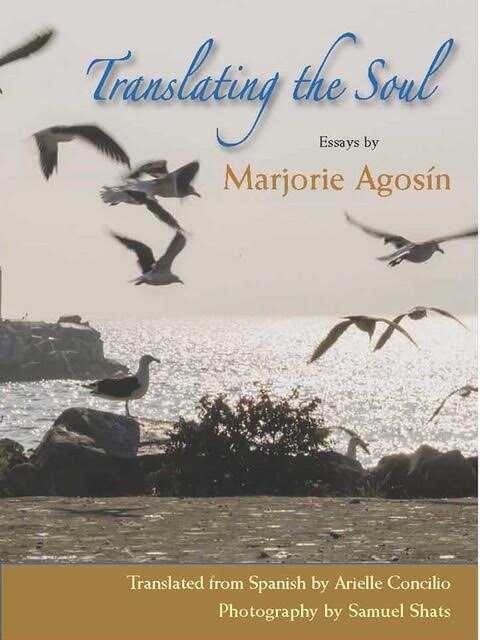Translating the Soul
Marjorie Agosín’s essays positively ache at moments: when she’s describing what it’s like to make home in a liminal space; as she calls out across time to memorialize family members who were brutally ripped away. And yet Translating the Soul is less an elegiac work than it is a celebration of the human spirit, a collection of essays worth wholeheartedly settling into.
Agosín, who’s been in America since her youth, centers her memories and estimations of the world in the places that feel most like home, particularly in the Chilean villages where her family found refuge from pogroms and the Holocaust. In the 1970s, they had to flee from there too, torn asunder by a brutal dictator once more.
Agosín names all of these pains, but they are not the focus of the collection; she boldly refuses to feel rancor in favor of understanding the “subjectivity of history.” Of German-speaking populations with possible Holocaust responsibilities in Chile’s south, she says “I’ve learned to forgive them, perhaps even love them.” Neighbors here are forever so, sometimes despite their actions, and home is something that you can carry with you—like dirt in the pocket, like a light violin, or in a memory that plays on your senses.
Lines are poetic, sometimes to the point of evasiveness, but always in a way that conveys Agosín’s eternal yearning and vivacity. Encounters with Neruda are captured amid mentions of green ink and dancing down an island beach; a beloved grandmother is remembered as having let Agosín “play with her hair and fill it with lavender and fireflies.”
From essay to essay, Agosín trades between honoring family members, drawing connections between homes new and old (the Spanish moss of Savannah’s trees becomes like a rabbi’s beard), and lauding writers like herself—variations or combinations of Chilean, Jewish, and ferociously female.
Translating the Soul is an immigrant’s treasure chest, by turns lyrical and spare, defiant and hopeful, and filled with every beautiful moment that refuses to disappear with “goodbye.”
Reviewed by
Michelle Anne Schingler
Disclosure: This article is not an endorsement, but a review. The publisher of this book provided free copies of the book to have their book reviewed by a professional reviewer. No fee was paid by the publisher for this review. Foreword Reviews only recommends books that we love. Foreword Magazine, Inc. is disclosing this in accordance with the Federal Trade Commission’s 16 CFR, Part 255.

